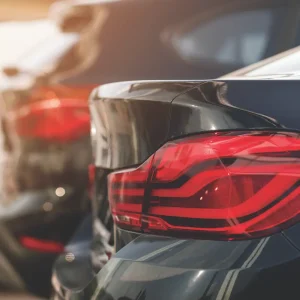Focus-sized and with mini-MPV practicality, supermini-MPVs are just made for downsizing drivers.
Supermini MPVs are small cars that don’t feel small, providing as much room inside as a conventional Focus-sized hatch and practicality comparable to a compact MPV. They have quite exceptional economy, too, particularly in diesel guise. Throw in affordable prices and they offer the perfect route to very low BIK bills without compromises, and are the ideal car for the downsizing fleet driver.
Vauxhall’s Meriva is the most well known. Facelifted earlier in the year, it’s one of the largest mini-MPVs, and offers a huge range. While it’s not as big as the Meriva, the Fiat Idea is still practical. The range is small (two trims, two engines) but it is cheap to run. The Renault Modus, in 1.5-litre dCi form, easily beats it for fuel economy, though; it’s one of the most fuel-efficient cars on the market, although it is appreciably smaller than the others in the group. That just leaves Nissan’s almost perfectly dimensioned Note, which is probably the most well thought-out contender here. It’s larger than the Modus but more compact than the Meriva.
Vauxhall Meriva
The five-seat Meriva has been a success, particularly in 1.3-litre CDTi form. It returns 56.5mpg, which is good, but still only third-best here. Performance isn’t the best, either – it’s torquey, but the 0-62mph time of 16.6secs is dismal. Equipment levels are a bit mean, too – really, why should steering rake adjust be an £85 option?
Positives include low servicing costs, stretched service intervals, a good monthly leasing figure and a huge boot. The rear bench can also be slid inwards and rearwards for ‘big car’ levels of legroom for two. What’s more, the Meriva is the cheapest model here – even with the must-have option of aircon.
+ Running costs, spaciousness, low BIK payments
– Performance, equipment
Fiat Idea
The Idea is the forgotten small MPV, and a sign that it’s not high on Fiat’s priority list is the lengthy delivery time. Three months is the wait for a BMW or Audi, not a Fiat. While it lacks the flair of Fiat’s Grande Punto’s, it’s still a practical proposition, with a roomy interior, big boot and cracking engine that’s the same as the Vauxhall’s but tuned to produce 90PS, having a positive effect on performance and fuel economy. However, it’s possible this extra performance is responsible for the steep group 6 insurance rating. Servicing is pricey, too, and Fiat dealers have a poor reputation, although repair costs are competitive.
+ Performance, low repairs
– Insurance, delivery time, leasing cost
Renault Modus
Renault invented the original MPV, and redefined the class a decade later with the Scenic. But its third creation hasn’t proven as popular – great things were expected of the Modus, but sales have struggled. Its slightly diminutive nature doesn’t help, and it’s the most obviously supermini-derived machine here. The boot is tiny and a forward sliding rear seat – that expands boot space but reduces rear legroom – is no solution if you need to carry back-seat passengers. The Privilege spec is lavishly stocked, however, and the small size does help fuel consumption, even if there’s no financial benefit in producing such low levels of CO2. It performs well, too, but if you want more power, Renault also offers a 106PS version with enough performance to dice with Lagunas.
+ Fuel economy, equipment
– Lacks space, retained values
Nissan Note
As a result of the Renault-Nissan joint venture, the Note is based on the Modus’ platform. Cunningly, though, the Japanese brought their model to market later, giving them time to stretch the wheelbase. Result? A bigger, more useable mini-MPV, yet still diminutively dimensioned. It also uses the same engine as the Modus – the extra size and weight probably accounting for the drop in economy and £525 greater fuel cost. But it is cheaper to service, and it boasts the lowest insurance rating of the lot. And according to HSBC it’ll also be the cheapest car of the lot to lease. Competitive and practical then, and the only car with standard ESP; it’s just a shame fuel economy takes such a hit.
+ Practicality, insurance, retained values, ESP standard
– Economy





